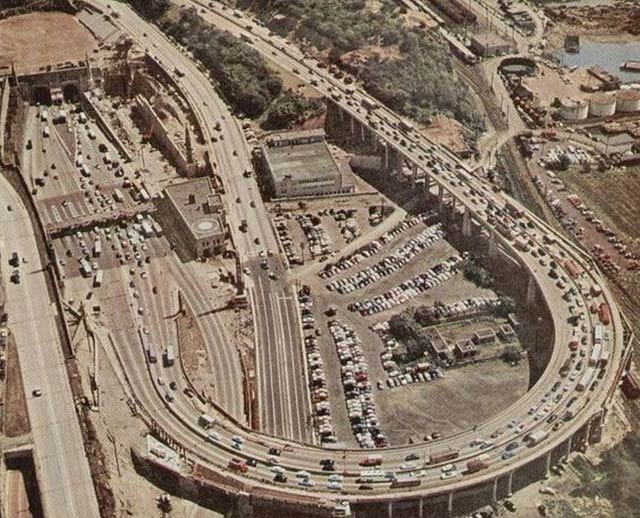New Jersey Senator Frank Lautenberg has been spoiling for a fight ever since the Port Authority raised tolls to cross into New York. And yesterday, he got it.

Lautenberg invited Bill Baroni, the deputy director of the Port Authority, to testify at a Commerce Committee hearing that turned into little more than a showdown between the two men.
Lautenberg was commissioner of the Port Authority from 1978 to 1982, and he said that back then, the toll was $2, which would be about $5 in today’s dollars. “When it costs $12 to drive your car across a bridge in America, something is wrong,” Lautenberg said, adding that the decision to raise the rates was made “behind closed doors.”
Baroni countered that the Authority had actually held 10 public hearings on the toll increase, involving more than 1,500 people. He went through a list of crisis-level needs that necessitated the toll increase, from the Bayonne Bridge, which has to be raised to allow larger ships to pass under it, to the Lincoln Tunnel helix, which hadn’t been rehabbed in 70 years, to the George Washington Bridge’s suspender ropes, which need replacing.
But then he mentioned that Lautenberg, as a former commissioner, has a free E-ZPass, and that “it is impossible to argue fairness in tolls if you don’t pay them.” The whole thing spiraled into a war of words from there, with Baroni at one point obliquely comparing Lautenberg to Joe McCarthy.
The shoot-‘em-up nature of the hearing may have been the most entertaining part, but amidst the political theater there were some meaningful comments on the utility of tolling: for example, Baroni’s insistence that more funds from drivers are needed to bring his agency's infrastructure into a state of good repair. Barring an increase in the gas tax, tolling is the only way to raise that revenue and maintain aging roads and bridges.
Chris Plaushin of AAA was on hand to insist not only that drivers’ user fees be dedicated exclusively to infrastructure for drivers, but to say that the user fee collected on a given roadway should only be used for maintenance of that exact roadway. Many are justifiably annoyed that Port Authority money went to office buildings and the World Trade Center reconstruction, but there are, of course, ways to fund a variety of surface transportation projects in a given region without allowing the kind of diversion that so many objected to in New York.
North Carolina Transportation Secretary Eugene Conti, who came all the way in for the hearing and then was largely shut out as Baroni and Lautenberg dueled, countered that it was still sound to allocate revenue from a user fee to other transportation routes on the same corridor or region as the tolled road. He didn’t specify whether he thought transit was a justifiable use.
In Baroni’s somewhat less pugilistic moments, he mentioned that the increase in the Port Authority bridge tolls comes with a lot of loopholes – discounts for E-ZPass holders, green cars, carpools, users of the Staten Island bridges, trucks, overnight driving, and frequent drivers. In essence, it’s become a sort of variable rate system, which rewards driving behaviors that help mitigate traffic congestion and air pollution (though not all of the incentives align so neatly).
Interstate tolling encountered opposition at the hearing from the trucking industry. Steve Grabell of National Freight, Inc. said his truckers respond to higher tolls by rerouting to secondary roads, which are less efficient, causing congestion in those areas and increasing emissions. He also warned that higher tolls would cause his company to hire less and delay expansion. No one at the hearing challenged his assertions.
Plaushin of AAA also expressed his organization’s opposition to tolling existing interstates. Conti again took issue with AAA, saying Congress needs to allow increased “flexibility” for states trying to raise additional revenue. Indeed, if AAA is going to insist that user fees only fund the precise stretch of asphalt they’re collected on, how do they propose keeping untolled roadways from crumbing into dust?





